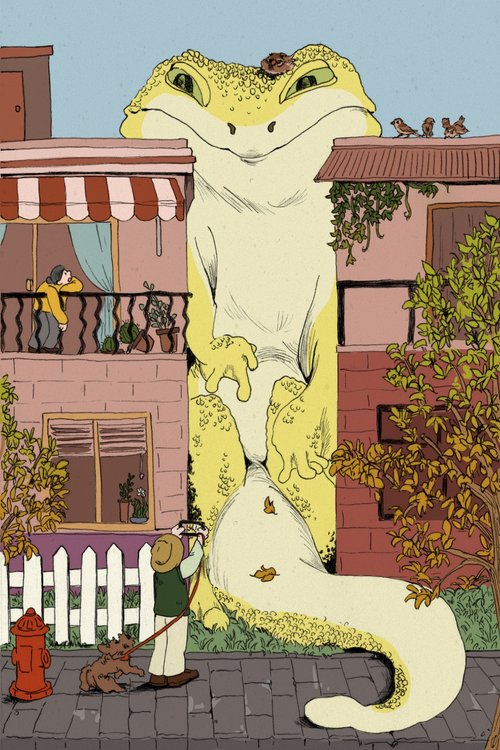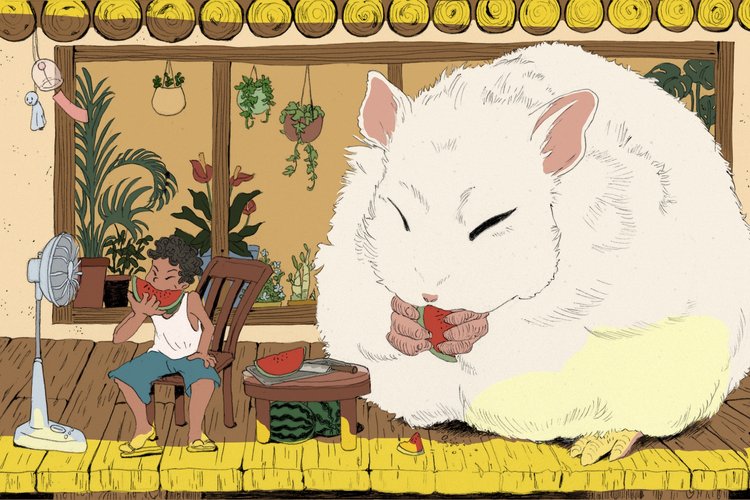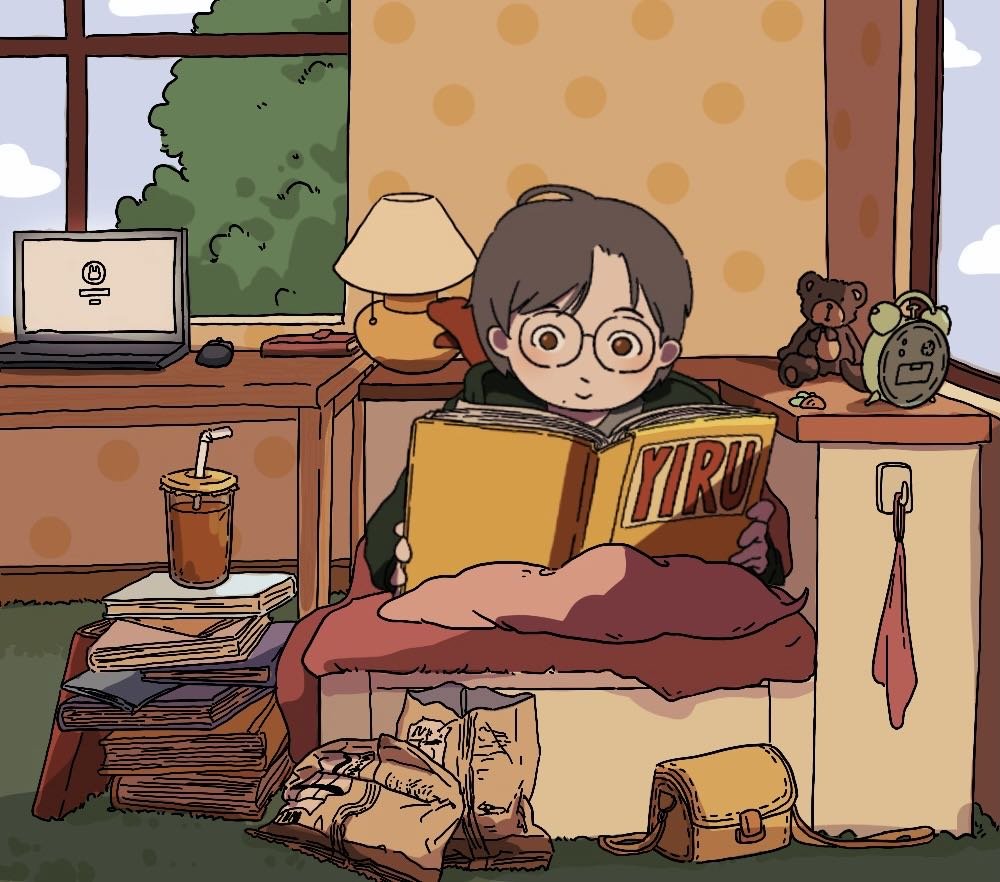We were lucky to catch up with Yiru Xue recently and have shared our conversation below.
Yiru, looking forward to hearing all of your stories today. Did you always know you wanted to pursue a creative or artistic career? When did you first know?
I first realized I wanted to pursue a creative path professionally through what felt like a quiet but profound nudge from fate. In high school, after casually sketching in my notebook during class, my teacher, who had been watching me for a while, pulled me aside and suggested I consider studying art. It was as if she saw something in me that I hadn’t fully recognized yet. Until then, drawing had been a quiet joy, something I did without thinking too much about its future. But her words stayed with me, echoing in the back of my mind. That suggestion felt like one of those small, unexpected moments that, like a marble in a Rube Goldberg machine, set everything into motion. When I shared the idea with my parents, they were more supportive than I could have imagined. And so, without realizing it, I stepped onto the path that led me here—to the world of illustration and storytelling, where I found my true voice.
But from that point on, there’s this fixed mindset that the major you choose in college must directly connect to the career you’ll pursue in the future. So, the idea of pursuing art as a career likely started in high school for me, though it felt a bit like going with the flow, half-pushed, half-accepting. In reality, I didn’t fully, consciously decide to make this my career until after numerous experiences with drawing, working, and experimenting. Turning a passion into long-term work always consumes some of that initial excitement, but every time I work on my own projects, I can still feel the strength that comes from the brush in my hand and the worlds I create. I love the emotions stories bring me. I love writing stories, telling them, and expressing them through my art. This love for storytelling is the biggest motivation that solidifies my commitment to the path of art.
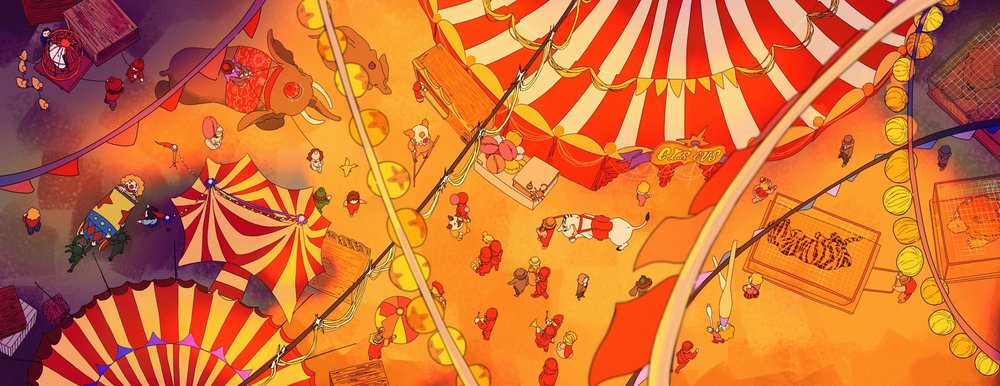
As always, we appreciate you sharing your insights and we’ve got a few more questions for you, but before we get to all of that can you take a minute to introduce yourself and give our readers some of your back background and context?
I’ve always seen life as a series of unexpected turns, much like a Rube Goldberg machine where small events set off a chain reaction, leading you to places you hadn’t planned. My path into the world of illustration was just like that. Growing up, I was always fascinated by stories and visual expression, but it wasn’t until high school that a teacher suggested I pursue art seriously. At first, it felt like a gentle push in an uncharted direction, but over time, through many hours of drawing and experimenting, I realized that creating art was more than just a hobby—it was something I wanted to turn into a career.
Today, as a freelance illustrator and an MFA student at the School of Visual Arts, I focus on telling stories through visuals. My work primarily revolves around narrative-driven illustrations that explore relationships and emotions. I’ve also branched out into toy design and animation, bringing a playful, tactile element to my projects. What sets my work apart is this deep love for storytelling. I don’t just aim to create beautiful images; I want each piece to evoke a sense of connection, a world where viewers can see themselves or reflect on their own experiences.
For my clients, I provide custom illustrations and occasionally animations based on their specific needs. Whether it’s a book cover, character design, or short animation, I strive to bring the essence of a story to life. More recently, I’ve started exploring toy design, which has been an exciting new direction. I’m also delving into video editing and modeling, constantly expanding my skill set to offer a broader range of creative services.
The thing I’m most proud of is the way I’ve blended simplicity with complexity in my work. I keep my style clean and approachable, often rooted in real-life moments, while also weaving in intricate thoughts and emotions. I want my work to feel grounded in reality, even when it touches on fantasy or abstract ideas. What I hope people take away from my art is that even the small, everyday moments in life are worthy of celebration, and it’s these moments that make up the richness of our stories.
If there’s one thing I’d like potential clients or followers to know about me, it’s that I’m a storyteller at heart. Whether through illustration, animation, or design, my work is always focused on creating connections between people and the narratives that shape our lives. That’s what drives me forward and fuels my creativity.
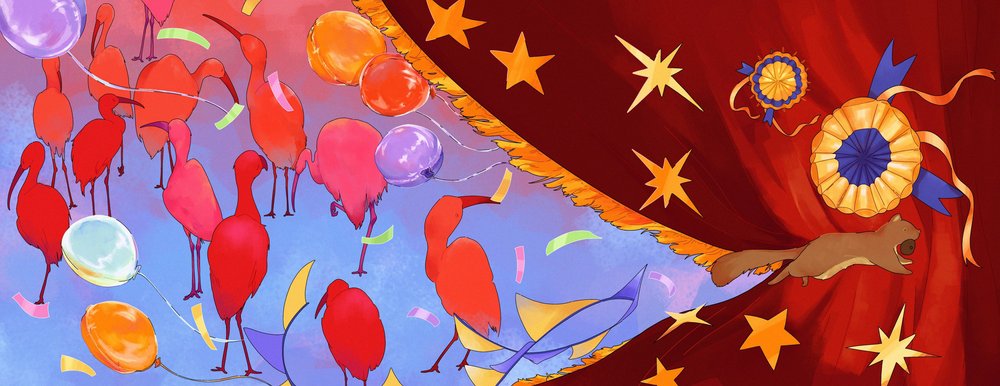
Have any books or other resources had a big impact on you?
Yes – My favorite writer, who has influenced me for over a decade and may continue to do so for a lifetime, is Wang Zengqi. During my middle and high school years, I was deeply influenced by him in terms of writing style, daily life, and psychological state. For those who may not be familiar with him, let me give a brief introduction: he is a contemporary Chinese novelist and essayist. His essays are not crafted with meticulous structure nor do they seek profound themes; instead, they are plain and unpretentious, flowing as if in casual conversation. Through personal, seemingly trivial topics, he beautifies everyday life, allowing readers to relive the charm of classical essays from the past. He brings the serenity and elegance back to prose, breaking free from the monotony of “thousands of works sounding the same.” This state of writing has nearly shaped my personality, making him one of the most impactful figures in my personal development.
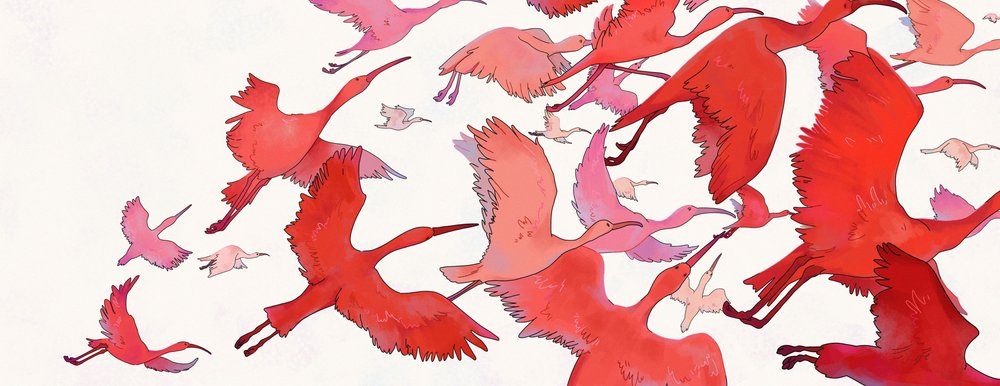
Any resources you can share with us that might be helpful to other creatives?
Yes – Actually, as long as you discover a resource or pathway, it’s never too late. However, if I had known about the art conventions earlier, I might have figured out my direction sooner. Events like Lightbox Expo and MoCCA Art Festival are great for gaining insight into the industry. Especially with Lightbox Expo—I’m still grateful that I didn’t let the cost of airfare and other expenses keep me from attending the first time I heard about it. Conventions help you understand the ins and outs of the industry, learn from the experiences of veterans, and even find job opportunities. In addition, you can meet many like-minded friends who might become part of your professional network, and you could become part of theirs. Building a network is always a good thing.
Contact Info:
- Website: https://www.xueyiru.com/
